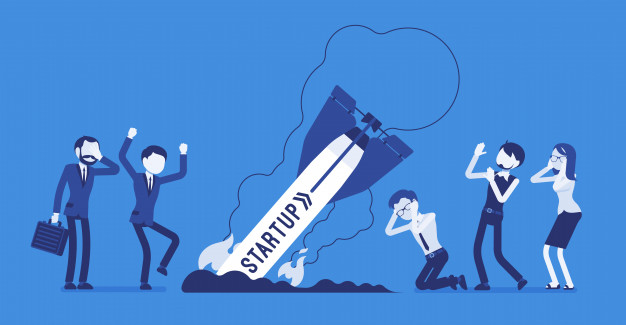1. Introduction and Background: Women play a dominant role in the Bangladesh economy. They have participated in the labor market in large numbers. The emergence of an increasing number of Women Entrepreneurs and their contribution to the national economy is quite visible in Bangladesh. Women Entrepreneurs have proved their efficiency in undertaking micro-enterprises as well as big enterprises also.

Female participation in Bangladesh’s labor force has increased to 36.3 percent in 2017 from 33.2 percent in 2016.[1] Trends vary across rural and urban areas and among women with high educational attainment and poorly educated women. According to the Economic Census 2013, the number of female-headed establishments is 0.56 million (7.21 percent) while it was 0.10 million (2.80 percent) in 2001 and 2003. The explanation for this rising rate and the behavior of female entrepreneurs in terms of traits, motivations, success rates, and gender-related distinctiveness is, however, complex and multifaceted.[2]
Women Entrepreneurship refers to ownership and leasing of businesses by a woman. According to the definition given in the Industrial Policy 2016, a female is an entrepreneur if she is the owner or proprietor of a privately-run business, organization or owns at least 51% share in a joint venture or company listed with the Registrar of Joint Stock Companies and Firms. The Bangladesh Bank (BB) also follows the same definition.
Women entrepreneurs in Bangladesh are involved in various kinds of businesses, such as manufacturing, trading, service, and others. The educational status varied across sectors, for example, women entrepreneurs involved in software development, leather, pharmaceuticals, education, consultancy, and health sectors have relatively higher levels of education compared to the average education level in other sectors. Enterprises run by women are generating employment for many others, including a large number of women. On average, manufacturing enterprises employ around 70 workers. However, most of the enterprises employ 1 to 10 workers.[3]
In Bangladesh Development of women in all spheres of the national life has been given priority in the Constitution and all development plans, policies and programs. A number of government and non-government organizations (NGOs), Financial Institutions are working for the economic and social development of women. UN Agencies, donors, INGOs, and NGOs are engaged in poverty alleviation and women’s development programs in Bangladesh. Academicians and people from the practical field also have emphasized the necessity of credit for the promotion of women entrepreneurs in various ways. According to Dr. Muhammad Yunus of Grameen Bank, ‘credit creates hope and ambition for change in the women business peoples and potential entrepreneurs’.

2.Challenges faced by the Women Entrepreneurs: A recent non-representative survey of the World Bank Group facilitated by WE Connect International showed, there are successful women business owners in Bangladesh but that they struggle to compete in a business community that is still heavily male-dominated. Among those women business owners who responded to the World Bank Group survey, 28 percent felt that women business owners faced obstacles that their male counterparts do not. The obstacles faced by the Women Business Owners are reported to:
i)Attitude and conservativeness within Family and Society: Many women still do not have free will to make their own decisions about their careers. In a Study on “Non-financial challenges faced by women entrepreneurs in SMEs” conducted by BIDS and SME Foundation, most of the entrepreneurs noted that their in-laws (in case of married women) and not even parents supported the idea of starting a business. Even if they could start the business, their mobility was restricted.[4] Another key struggle for women business-owners is related to marital status- balancing family issues, heavy involvement in household, child-bearing and caring activities, and consequently they lack the time to conduct successful business activities.
ii)Lack of Access to Education, Training and Modern Technology: Unequal access to education restricts women from acquiring even functional levels of literacy required to learn skills. Also after getting an education a family prefers its women member to be a service holder then a businessperson. Traditionally, women tend to go into general education instead of technical, skills-oriented programs. Lack of technical knowledge impedes women’s entry into technologically sophisticated activities with the potential for better productivity and increased profitability. Provision of support services for women such as technological information, skill training, and assistance in introducing technological change in their production process is virtually non-existent.
iii)Restricted Mobility: Women are usually impeded by their lack of mobility, low literacy levels and prejudiced attitudes towards women. (Kumari et.al, 2010). Though the government of Bangladesh has enacted several laws in the past years to prevent violence against women even then sexual violence and harassment is another big problem faced by women entrepreneurs.
iv)Government Policy and Programmes: Government policy statements emphasize the role of women in development activities, but too many potential female entrepreneurs remain unaware of government facilities, support and incentives. Tax policy and taxation can have a profound influence on women entrepreneurship development.
v)Financial Support: Women have little access to either institutional or non-institutional credit facilities for their fixed or working capital requirements as commercial banks are generally reluctant to extend loans to women. Banks want guarantees from fathers or husbands who are generally unwilling to oblige. These attitudes restrict the access of independent female entrepreneurs to credit.[5]The demand from the banks for collateral is another impediment to getting loans as women have very limited access to land and other wealth, Complicated and lengthy procedures and high transaction costs discourage borrowing from banks.
High Interest on bank loans discourages women from seeking bank loans as the returns on investment earned by women are relatively low. This also. To borrow from a bank, one has to submit a business plan and suffer the inconvenience of visiting the bank several times. Most women lack the knowledge and skills to prepare an effective business plan for the purpose of obtaining credit.
vi)Problems in marketing their products: This is due to their inadequate knowledge of marketing; non-availability of marketing information; inability to estimate the demand for products and services; the charging of lower prices as a market entry strategy as they do not know how to price a product; lack of marketing outlet/shop of their own and storage facilities; inability to hold stocks of the product due to a poor financial base; unfavorable payment procedures on the part of intermediaries; competition from imported goods; inferior product quality; and inadequate support services; supplying their products to other business people (mostly men) on credit blocks a good amount of their capital, get low return and usually faces harassment to get the payment which is difficult and delayed. They also face tremendous competition among themselves since they are concentrated in a few sectors.

3.Recommendations and proposed interventions[6]:
i)Prioritizing entrepreneurial development: Awareness of business opportunities and support services offered by both government and non-governmental organizations should be targeted at women as this can motivate women to enter the business. Mechanisms for monitoring and evaluating government financial and non-financial policies need to be improved and made effective. These would enhance the Governments’ efforts in designing, monitoring, and evaluating policies aiming to improve opportunities for employment (including self-employment), especially among women. Monitoring and evaluation and tracer studies are needed to determine how training graduates are progressing as entrepreneurs.
ii)Counselling and support services for credit: Small or medium business-credit addressing first-generation and emerging entrepreneurs must include provisions for comprehensive training, including pre-investment and post-investment counselling; generation of project ideas; techniques for selecting suitable projects; preparation of business plans; monitoring and management; close supervision during implementation; and sustaining support. Borrowers should be provided with technical assistance. Implementation of credit programmes should be followed by close supervision of the use of funds. Lending procedures must be simplified, with minimum documentation formalities. Special provisions should be made for female entrepreneurs, allowing them to get credit up to higher limits on easier terms and conditions.
iii)Advanced EDP Training: Advanced entrepreneurship development training programs (EDP) can be organized for existing and potential female entrepreneurs. The selection of potential entrepreneurs must be done on an open, transparent and scientific basis and those with appropriate qualities should be selected for training. Trainers should be well trained, experienced in the relevant field, and capable of understanding trainees’ needs. Trainees should also be fully committed to the promotion and development of entrepreneurship. Training programs may be organized by forming a consortium of training institutes, promotional agencies, and banks. Training institutes should take the lead in forming such a consortium.
Iv) Infrastructure and Marketing support: To promote the sale of products of women entrepreneurs, the Government can establish controls on sales and display, and motivate entrepreneurs to maintain product quality in the interests of continued success. Female entrepreneurs might be allowed to introduce their products through mass media and fairs or exhibitions at a concessionary rate. Marketing support services for their products could also be strengthened.
v)Comprehensive Training Centers: Existing institutions should be strengthened through the establishment of a new specialized enterprise development center under the joint sponsorship of banks or private enterprise. This center should aim to provide an institutional framework for training, also offering consultancy services to both financial institutions and entrepreneurs, and undertaking research on related problems.
vi) Seminar/Workshop/ Dialogue on relevant legislative issues: A mechanism should be developed to organize dialogue, seminars and workshops on relevant legislative issues by which female entrepreneurs will be able to discuss contemporary issues. Relevant literature should be distributed to newly registered enterprises. Periodical seminars and workshops would also help to generate social awareness, as well as provide both a forum for discussing women’s roles in social and economic development and guidelines for supportive government policy formulation.
vii)Collection of gender-disaggregated data: Gender-disaggregated data are insufficient for analysis of structural changes in the labor market or to formulate appropriate policies and legislation to improve the actual status of women or respond to their needs. Census questionnaires should be revised to collect data disaggregated by sex for all sectors.
viii) Strengthening women’s entrepreneurship associations: Create new female entrepreneur associations and strengthen existing ones so that they can play a vital role in lobbying for more effective policies to promote women’s entrepreneurship.
vix) Special banking facilities: Establishment of a separate bank should better address the special needs of female entrepreneurs, with a certain proportion of facilities earmarked for female entrepreneurs. Existing banks, meanwhile, could open separate and effective windows for women clients.
Conclusion: This article has tried to review the status of women entrepreneurs in Bangladesh. It has set the scene by examining the role of women in Bangladeshi society, and the opportunities open to them. Women entrepreneurship has grown significantly in recent years as women are now becoming educated and interested in establishing their own business. But women entrepreneurs face many problems such as financial or credit facility, training facility, marketing problems, social security problems, etc. Attitude toward women of their family and society also creates problems to develop themselves as entrepreneurs. So far, very few entrepreneurship development programs, in the real sense of the term, addresses the special needs of women. Since women are relatively newcomers to entrepreneurship, they need special attention if they are to establish a foothold.
The government has adopted some policies regarding women entrepreneurship development but due to administrative complications these policies may fail at the time of applications. So rules and policy formation should support the women entrepreneurs so that they can develop themselves and can perform. It will lead to the development of a country’s sustainable economic growth as well as make a contribution towards the women entrepreneurs’ family.
[1]Report on ‘Asia-Pacific Employment and Social Outlook 2018’of the International Labour Organisation. The Daily Star, August 22, 2019
[2] The Financial Express, August 22, 2019.
[3] Study on “Non-financial challenges faced by women entrepreneurs in SMEs” Dr.Nazneen Ahmed, Senior research Fellow,BIDS
[4] Study on “Non-financial challenges faced by women entrepreneurs in SMEs”
Dr.Nazneen Ahmed, Senior research Fellow,BIDS
[5] Karim, Nilufer, A. (1995), Women entrepreneurs and credit financing in Bangladesh, Bank Parikrama , BIBM .
[6] Karim, Nilufer A., (2001), SEED Working Paper No. 14, Jobs, Gender and Small Enterprises in Bangladesh: Factors Affecting Women Entrepreneurs in Small and Cottage Industries in Bangladesh, International Labour Office, Geneva

Sincere thanks to Ms Nilufer Karim for the grounded thought and leadership to talk about the status of women entrepreneurs in Bangladesh. She actually knows where to strike- as she first examined the role of women in our society, and the opportunities open to them. Obviously, education comes to the forefront to significantly reshape the current role of women. Structural problems exist for anyone be he or she for doing any kind of business in Bangladesh. However, along with structural factors, I am more concerned with the attitudinal issues as being women they have special needs, they are relatively new comers,and more importantly as a nation we won’t be able to achieve Sustainable Development Goals leaving them behind.
As the problems are identified, I would suggest to immediately take action-oriented items such as 3R-Rights, Representativeness and Resources for the Women Entrepreneurs through advocacy, capacity building and representation in high-level forums of decision makers.